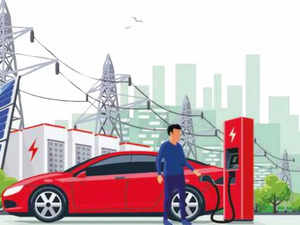
I strongly believe sustainability is not just a catchword. It is imperative for our well-being. If we look at India's contribution in the global sustainability missions, the country has taken great strides to achieve its sustainability goals. At the COP26, Prime Minister Narendra Modi committed that India would achieve its net-zero carbon emissions target by 2070 and will meet 50% of its energy requirements from renewable energy by 2030. To achieve our sustainability goals, we need to invest in disruptive practices and green technologies to optimise water consumption, improve air quality, ensure energy security, biodiversity and reduce carbon footprint.
Following the net zero roadmap
India has taken great leaps in terms of green energy practices. It is one of the few large countries that have done exceptionally well in terms of staying truly aligned to the commitments made in the Paris Agreement.
The country's economy is growing and provides great opportunities to follow the path of sustainable development through innovative solutions. Today, the government is investing in systems to reduce the carbon footprint. On its part, the industry is adopting practices for transition to net zero.
At Vedanta, we are taking significant steps to achieve carbon neutrality by 2050 or sooner and are investing $5 billion over the next 10 years for this transition.
Investments in green tech, energy
Increased investments in green technology and energy resources can accelerate decarbonisation efforts and also translate into huge economic gains.
The country is transforming its road traffic to electric, lowering dependency on fossil fuels, cutting imports, and has set a target of achieving 500 GW by 2030 from renewable energy. Green energy practices have a great potential to attract investments and can bring in funds to transform ideas into actions. Energy efficient equipment and large tech adoption are the must-haves for a sustainable future. A simple yet massive campaign for adoption of LED bulbs is reducing India's emissions by 40 million tonnes annually. I am personally delighted to see that at Vedanta, everybody is environmentally conscious and making every possible effort to take care of our planet.
Zero harm, zero waste, zero discharge
The focus of business is shifting from making profits to adding value. The industries now have well-thought strategies in place for sourcing, allocation and utilisation of raw materials, fuel, and water for sustainable practices. A 'zero harm, zero waste, zero discharge' approach can be the step toward transforming industry practices for good through material recovery and reuse. It is important to outline that efficient waste management should prevent the environment from degrading. Adopting innovative methods for full utilisation of materials and zero waste can minimise the material use and mitigate environmental challenges.
Focus on circular economy
A deep focus on circular economy can lead to 100% utilisation of wastewater and solid waste. A circular economy carries the potential of integrating regenerative design thinking and efficient use of resources. This also increases the potential for economic growth and opens new opportunities. Focusing on a circular economy can initiate actions on reduce, reuse and recycle for action-based solutions for sustainability.
The World Environment Day is a reminder to translate commitments into actions to protect the environment and reiterate our responsibility toward the cause. The window for transformative change is narrowing, but it is still open. The choices we make now will define the planet's health, not just for the next generation but for many generations to come.
The author is Chairman, Vedanta
Download The Economic Times News App to get Daily Market Updates & Live Business News.
Download The Economic Times News App to get Daily Market Updates & Live Business News.









 Get Unlimited Access to The Economic Times
Get Unlimited Access to The Economic Times
